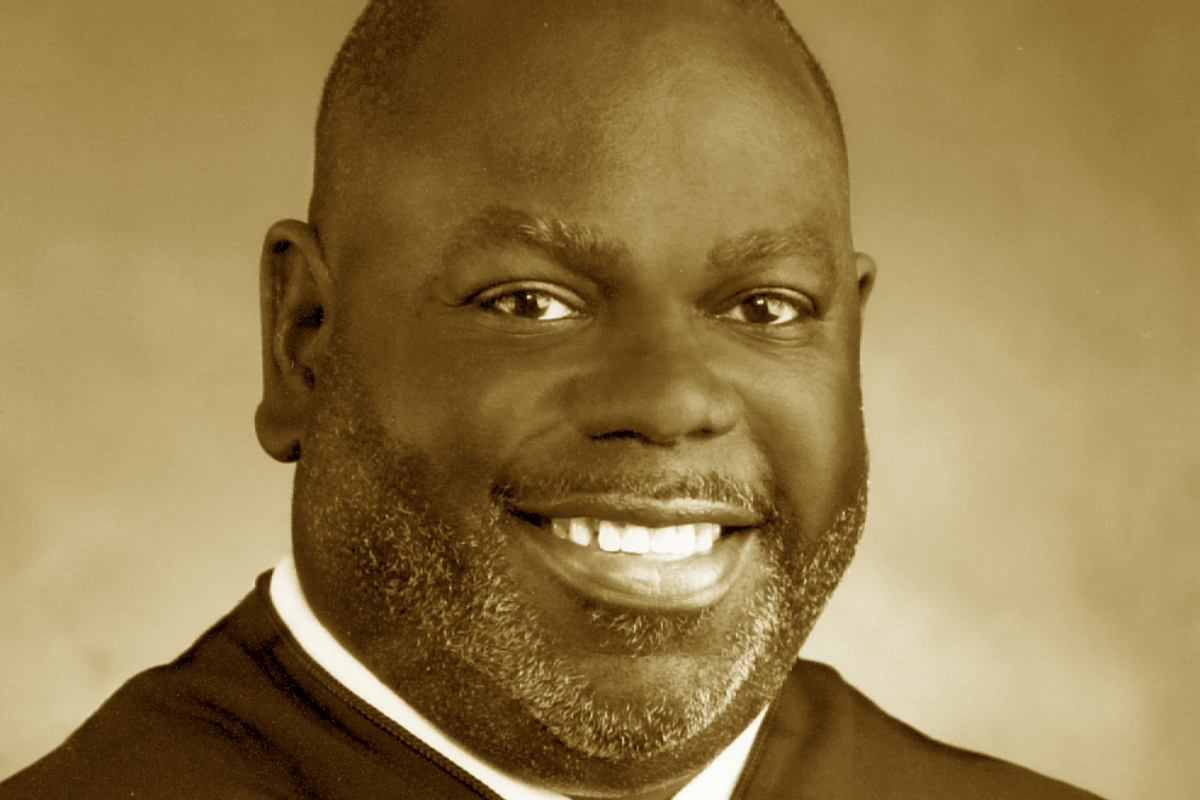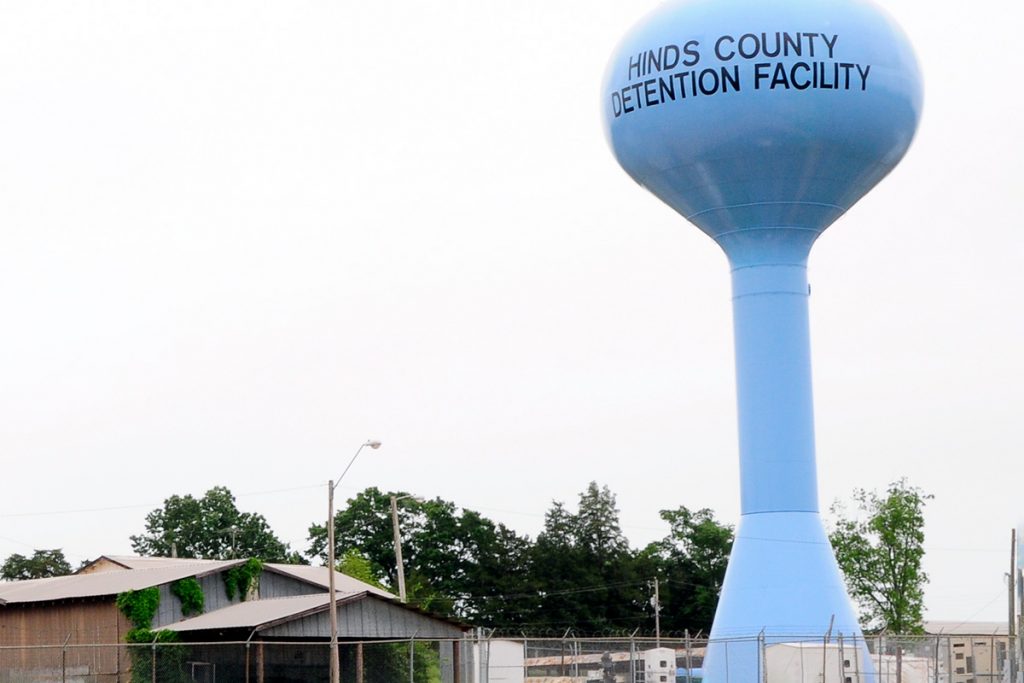Hinds County has until the middle of this month to convince a federal judge to not hold it in civil contempt and take over the running of the Hinds County Detention Center in Raymond. Part of its argument will be plans for a new $35-million jail, using increased property taxes to fund it.
Finding the county in civil contempt would create the basis for the U.S. District Court for Southern Mississippi to move the jail away from the county’s control and place it under receivership as a result of the county’s lag in fulfilling the conditions of a 2016 federal consent decree.
In a Nov. 23, 2021, “order to show cause,” U.S. District Judge Carlton W. Reeves laid out various causes of concern for the Raymond jail, throwing down the gauntlet against the county. Citing the deaths recorded at the facility this year, Reeves reiterated the perennial problems of the jail and explained that “receivership” is a court tool to be used after other remedies fail.
“And the County’s failure to remedy the conditions has caused ‘needless suffering and death,’ including six deaths so far this year,” Judge Reeves wrote. “It is troubling that they happened in the first place, and it is troubling how the County has responded—or failed to respond.”
“Proceedings are therefore necessary to determine whether Hinds County should be held in civil contempt and RDC placed into federal receivership,” he concluded.

Hinds County’s Response
Hinds County Board of Supervisors President and District 3 Supervisor Credell Calhoun claimed the board had attempted to resolve the jail’s issues in a phone interview with the Mississippi Free Press on Nov. 29.
He said the board intends to make a case to the court to keep the detention facility out of receivership.
“The problem that (Reeves) has are the deaths that are caused by whatever reason at the jail, and so we were trying to fix the situation at the detention center in Raymond as best as we can,” Calhoun said.
“What we’ll show is what we have been doing since this board took over—we have spent millions of dollars trying to get in compliance,” Calhoun added. “We will continue to explain what we are trying to do, and hopefully, we can convince him that we should not be taken over at this time.”
He said the faulty jail construction has been a problem that has dogged the Raymond facility since its opening in 1994.
“The main issue with the jail is the jail really wasn’t built to spec when it was constructed, and they (Department of Justice) want us to have detention officers watching everything that the detainees are doing, when they’re sleeping, when they’re not sleeping, whatever; they want somebody watching them,” the board president said.
“And that jail, the facility, was not built to accomplish that in the beginning, and whoever built it, the construction person that built that facility didn’t know how to build a jail, in my opinion.”

Court Order on Day of Sheriff Special Runoff Election
The county held a special runoff election to elect a new sheriff, who will inherit the running of the detention center, on Nov. 23. In the contest between Tyree Jones, former Hinds County Sheriff’s Office spokesman and investigation captain, and Interim Sheriff Marshand Crisler, Jones emerged as the official winner. Reeves’ order came on the same day of the election.
Prior to his swearing-in on Friday, Dec. 3, Jones told the Mississippi Free Press that he had spoken with Calhoun about the court’s decision. “I am aware of it; I have reviewed it,” Jones said on the phone. “I look forward to addressing it further once I am officially in office.”
After Hinds Circuit Court Judge Faye Peterson swore him in on Friday, Jones mentioned the Raymond Detention Center as the most pressing concern. “I’ve already begun addressing some of the issues,” he told the press. “I’ve been meeting with the other parties that are involved to be able to properly respond to that particular order, so I look forward to continuing to address it—meet with legal counsel, meet with the Hinds County Board of Supervisors and continue to address those issues.”
Eleven Unresolved Issues at the Jail
Apart from the deaths recorded in the Hinds County Detention Center in 2021, Reeves compiled a long list of unresolved issues at the facility: understaffing, fire risk, cell doors that do not lock, cells that have become dumpsters, high incidents of drugs and contraband, inadequate medical and mental care, overuse of chemical spray to control inmates, detainees running part of the jail, COVID-19 management, and not releasing those found not guilty.
“RDC nevertheless routinely fails to release individuals found not guilty, acquitted, or who have the charges against them dismissed,” Reeves added in the order, referring to Hinds County’s long and notorious policy of warehousing unconvicted people for months or years at a time. “But RDC also needs to develop a means of identifying and releasing those for whom no lawful basis of detention exists.”

When the Mississippi Free Press asked Calhoun for what he considers the main problem with the jail, he mentioned cell doors. “The doors would not lock—so since this board has come in, we have spent millions of dollars trying to bring it into compliance and making sure that all the doors lock,” he said. “And we still have not finished completing the tasks that we started.”
County Plans New Jail
Calhoun told the Mississippi Free Press that the board will soon approve a new jail’s construction in consultation with the U.S. Department of Justice. He said it will be on 16th Section land near the Henley-Young Juvenile Justice Center along McDowell Road in Jackson. As a long-term remedy, Calhoun hopes this action will convince the court of the county’s seriousness in addressing its concerns. The board has been planning for a new jail since the beginning of their term in January 2020, he said.
“We started looking at figuring out how to come out from under the consent decree, and the one thing that we figured at the beginning (is that) there is no way to bring that facility into compliance,” he asserted.

An initial 200-bed facility at the new location will have a $35-million price tag, the board president explained, with funding for the project accumulating from an increase in property taxes the county intends to invoke later on. “We didn’t want to raise taxes right away in these tight times,” he said.
Afterward, two additional facilities with 200 beds each will follow, totaling 600 beds. Once construction is complete, the Raymond Detention Center, which has 594 beds, will eventually close.
“We should do contracts at the next meeting, and all of this is tantamount to letting the judge see that we are serious about what we are trying to do as far as coming out from other consent decree, and the new facility should come online in about 18 months,” he said. The next meeting is today, Dec. 6.
Following a tip, the board made a trip to the Coahoma County Detention Center to inspect the facility. Finding that the detention center met the standards for jails across the country that the DOJ specified, the board decided to replicate aspects of the jail’s structure, but on a larger scale, for the planned new detention center in Hinds County. Coahoma County, located in northeast Mississippi, completed the 155-bed detention facility in Clarksdale, Miss., in 2020.
“We looked at some jails, (and) we talked to the contractor that did the jail up in Coahoma,” Calhoun said. “We went up and looked at it, and we came to the conclusion that that’s the type of facility that we wanted to build here in Hinds County.”
The Coahoma Sheriff’s Office said on its website that the mission of the detention facility is to provide professional services, enforce the law and recognize the constitutional rights of all.
Inmates in Danger, Rights Violated
An attempt to reverse the constitutional violations in the Raymond jail necessitated the DOJ entering into a consent decree with Hinds County in 2016. The decree set out the dangers inmates face at the facility and how the lax supervision and medical oversight, among other problems, violates their rights.

The Justice Department’s findings show that inmates face dangers of violence from other prisoners as well as staff members, highlighting a need for more reasonable safety measures and levels of protection.
“Ready prisoner access to weapons, cell phones, drugs, and other illicit materials contribute to the ongoing risk of harm to both prisoners and staff,” a 2015 DOJ report stated. “The dangerous conditions in the Jail have resulted in, or contributed to, numerous prisoner-on-prisoner assaults.”
“While many staff members strive to respond professionally to dangerous working conditions, inexperienced or inadequately trained staff members use force even in situations when such force may be excessive or could escalate tensions in an already dangerous environment,” the report continued.
In addition, the report explained that jail understaffing, insufficient record keeping and a poor communication system have resulted in inmates staying longer than their court-ordered release dates.
“The unconstitutional conditions have not been remediated—they have no end in sight, in fact.” Reeves wrote on Nov. 23. “The Supreme Court has affirmed extraordinary federal intervention into correctional operations where constitutional violations persist ‘for years’ and ‘remain uncorrected.’ The record suggests that is the case today.”
Calhoun is hopeful that the board will be able to convince the court about its progress thus far and not enter a judgment against the county.
“You can’t say what the judge is going to decide, so I am just—I am hopeful, and the board is hopeful that everything will work out and (that) we can continue trying to get in compliance with the justice department’s demands,” he said.










